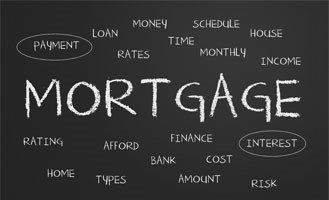10 Helpful Words to Know when Buying a Home

Buying a home is one of the most important financial decisions you will make and tends to be stressful with all the new terminology.
To help you understand the process and have confidence in your choices, check out the following common terms you will encounter during the home buying process.
1. Amortization – Length of time over which the mortgage debt will be repaid
2. Mortgage Term – Length of time that the contract with your mortgage including interest rate is fixed (typically 5 years)
3. Closing Costs – Costs you need to have available in addition to the purchase price of your home. Closing costs can include: legal fees, taxes, transfer fees, disbursements and are payable on closing day. They can range from 1.5% to 4% of a home’s selling price.
4. Down Payment – The portion of the home price that is NOT financed by the mortgage loan. The buying typically pays the down payment from their own resources (or other eligible sources) to secure a mortgage.
5. Equity – The difference between the price a home could be sold for and the total debts registered against it (i.e. mortgage). Equity usually increases as the mortgage is reduced by regular payments. Rising home prices and home improvements may also increase the equity in the property.
6. Fixed / Variable Mortgage Interest Rate – a fixed mortgage interest rate is locked-in and will not increase for the term of the mortgage. A variable mortgage interest rate is based on the Bank of Canada rate and can fluctuate based on market conditions, the Canadian economy. Fixed vs. Variable Rate Mortgages – Pros & Cons
7. Gross Debt Service Ratio (GDS) and Total Debt Service Ratio (TDS)
- GDS – Typically mortgage lenders only want you spending a maximum 32% of your gross income on your mortgage (principle & interest), property taxes, heat and 50% of your strata fees.
- TDS – typically, lenders want you spending a maximum 42% of your gross income on your GDS – PLUS any other debt obligations you have (credit card debt, car payments, lines of credit & loans). 3 “Rules of Lending” what Banks look at when you apply for a Mortgage in Canada
8. High-ratio mortgage / Conventional Mortgage – a high ratio mortgage is a mortgage loan higher than 80% of the lending value of the home. A conventional mortgage is when you have more than 20% down payment. In Canada, if you put less than 20% down payment, you must have Mortgage Default Insurance (see below) and your mortgage affordability (GDS & TDS) is “stress tested” with the Bank of Canada’s qualifying rate (currently 4.64%).
9. Mortgage Default Insurance – Is required for mortgage loans with less than a 20% down payment and is available from Canadian Mortgage & Housing Corp. (CMHC) or 2 other private companies. This insurance protects the lender in case you are unable to fulfil your financial obligations regarding the mortgage.
10. Open / Closed Mortgage
- An open mortgage is a flexible mortgage that allows you to pay off your mortgage in part or in full before the end of its term, because of the flexibility the interest rates are higher.
- Closed mortgages, typically cannot be paid off in whole or in part before the end of its term. Some lenders allow for a partial prepayment of a closed mortgage by increasing the mortgage payment or a lump sum prepayment. If you try and “break your mortgage” or if any prepayments are made above the stipulated allowance the lender allows, a penalty will be charged. Mortgage Penalties – Ouch… How Much??
Mortgages are complicated, but they don’t have to be… Engage an expert!
Give me a call and let’s discuss a mortgage that works for you (not the bank)!
Kelly Hudson
Mortgage Expert
Mobile: 604-312-5009
Kelly@KellyHudsonMortgages.com
www.KellyHudsonMortgages.com






